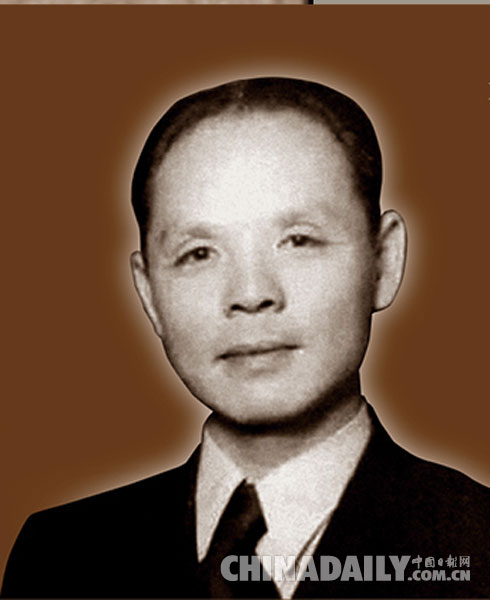He Fengshan, China's Schindler, saved 18,000 Austrian Jews
(chinadaily.com.cn) Updated: 2015-08-17 15:13
|
 |
|
File photo of He Fengshan, served as the Chinese Consul General in Vienna from 1938 to 1940. [Photo exclusively provided to chinadaily.com.cn] |
He Fengshan, known as the "Oskar Schindler of China," a diplomat who, while serving as the Chinese Consul General in Vienna from 1938 to 1940, saved the lives of thousands of Jews by giving them visas and helping them shelter in Shanghai as they escaped Nazi persecution during World War II.
With the Nazi takeover of Austria in March, 1938, anti-Semitism and the persecution of Jews erupted in full force. Using a policy of coerced expulsion, Nazi authorities told Jews that if they showed proof of emigration, they, as well as relatives deported to Nazi concentration camps, would be allowed to leave.
Many Austrian Jews tried to emigrate, but found almost no country willing to allow them entry. Their plight was further exacerbated by the July 13, 1938 resolution of the Evian Conference, which made it evident that nearly none of the 32 participating nations was willing to accept Jewish refugees.
Having been turned down by other foreign consulates, the Jews came to the Chinese Consulate, which issued visas to Shanghai. Occupied by the Japanese in 1937, Shanghai had no passport control and thus required no documents for entry. He's intent in issuing visas to Shanghai was to provide Jewish refugees with proof of emigration so that they would be allowed to leave Austria.
By issuing visas to Shanghai as a "destination", He placed the Chinese port city on the map as a refuge of last resort for Jewish refugees, and some 18,000 European Jews escaped there in 1938 and 1939.
Nazis seized the house of China's Vienna consulate as it was Jewish property. But He secretly kept issuing visas to Jews in his own rented house.
He was born in 1901 in Yiyang, a city in Central China's Hunan province. He died in 1997 in San Francisco.
In 2000, Israel bestowed one of its highest honors - the title of "Righteous Among the Nations" - on He posthumously "for his humanitarian courage" in the rescue of Austrian Jews.
The photos are exclusively provided to chinadaily.com.cn by Museum of the War of Chinese People's Resistance Against Japanese Aggression and cannot be used without permission.




